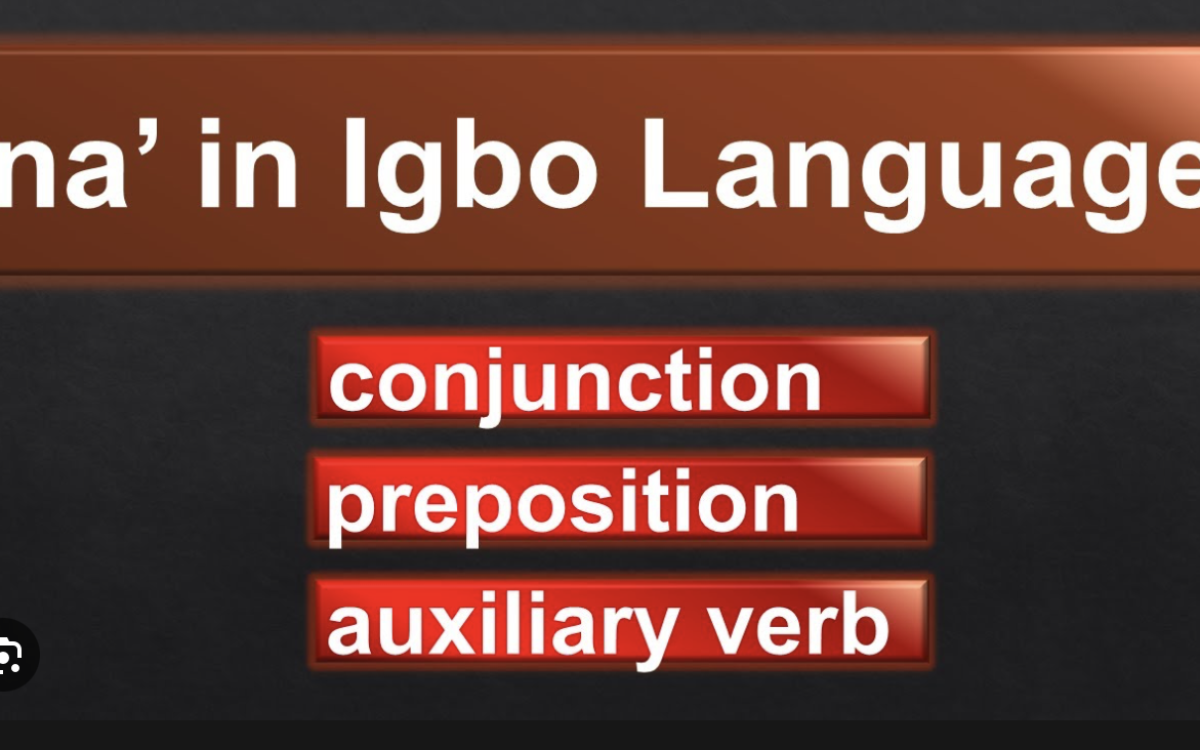5. Mgbe a tinyere – na – nganaazu – ghi -, a na-enweta okwu mgbochi. When suffix -ghi- is affixed to – na -, we get a prohibiting word.
a. Anaghi asu bekee n’ebe a — English is not spoken here.
b. Ọ naghi aza oku — S/he does not answer a call
c. Ha anaghi ekwu eziokwu — They are not saying the truth
d. Unu anaghi arahu ụra? — You are not sleeping?
6. Na ji – ri – arụ ọrụ igosi ihe na-emebu eme n’oge gara aga — Na uses – ri – to form a repetitive events.
a. Ọ nari emebu eme na mbu – It used to occur at the beginning.
b. I nari ekwu eziokwu — You used to say the truth.
c. Anyi nari agbabu ọsọ — We used to run.
d. Ha nari agbabu egwu — They used to dance.
7. A na-atinyere -na- nganiihu -a- iji gosi ihe abuọ na-eme otu oge – When the suffix -a- is affixed to -na- it shows something occurring simultaneously.
a. Ha riwe nri, ha ana-agu akwụkwọ – He reads while eating.
b. Ha kwebe ukwe ha ana-ekwe n’isi – They node their heads while singing
c. Ha gaba ije, ha ana-ehihie ukwu – They shake their waist while they work
d. Ha na-agu akwukwọ, ha ana-akpọ egwu – They play the music while studying
Ref: S. O Ezeomeke, Igodo Nghọta Ụtọasụsụ Igbo, 1999
For the first part consult : https://emekalison.blogspot.com/2019/08/oru-na-aru-nasusu-igbo-i-by-alisonomi.html






